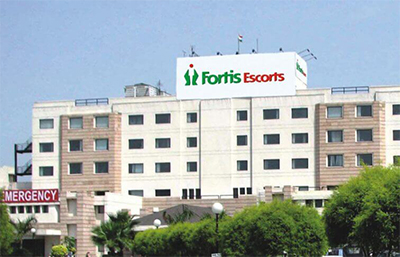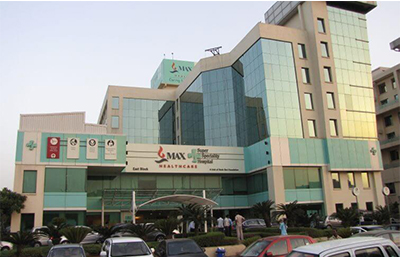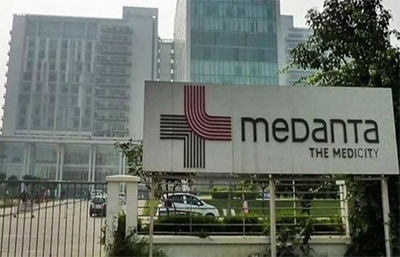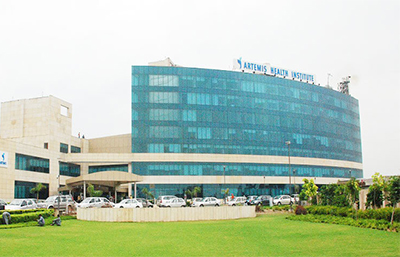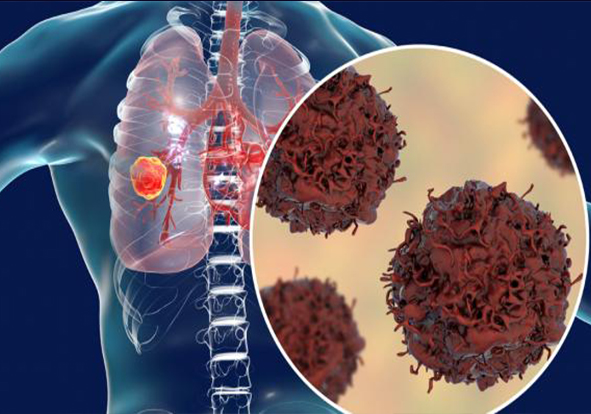Lung cancer is a serious health concern in the world, as it is one of the leading causes of cancer deaths in many countries. The treatment options for lung cancer in India include surgery, radiation therapy, chemotherapy, targeted therapy, and immunotherapy. The choice of treatment will depend on the stage and type of cancer, as well as the patient's overall health and preferences.
Types of Lung Cancer
- Small cell lung cancer (SCLC): It is a rare form of lung cancer that is mostly caused due to smoking and may spread faster.
- Non-small cell lung cancer (NSCLC): It includes a different form of lung cancer, which responds similarly:
- Large cell carcinoma: The cancer cells appear round and large under the microscope.
- Adenocarcinoma: This form of cancer begins in the mucous, making the gland cells in the lining of the airways.
- Squamous cell carcinoma: This form of cancer grows in the flat cells covering the surface of the airways.
Surgery is one of the most common treatments for lung cancer and can include a lobectomy, which removes a portion of the lung, or a pneumonectomy, which removes the entire lung. This is typically recommended for early-stage lung cancer, where the tumor is still confined to a single lobe of the lung. In some cases, a segmentectomy or wedge resection may be performed, which removes only the part of the lung that contains the tumor.
Radiation therapy is another treatment option for lung cancer in India, which uses high-energy beams to kill cancer cells. This can be used as a primary treatment for early-stage lung cancer or as an adjuvant treatment, following surgery to reduce the risk of the cancer returning. In some cases, a combination of radiation therapy and chemotherapy may be recommended.
Symptoms
In the early stage of lung cancer, no signs and symptoms can be detected. In advance stage, it may show the following symptoms::
- Cough that won’t go away
- Shortness of breath
- Coughing up blood
- Hoarseness of voice
- Chest pain
- Weight loss
- Headache
- Bone pain
- Fatigue
Stages of non-cell lung cancer
- Stage I: In this stage, the cancer is found only in the lung
- Stage IIIn this stage, cancer is found in the lungs and nearby lymph nodes.
- Stage III: In this stage, cancer is found in the lungs and in the lymph nodes present in the middle of the chest (locally advanced disease). It has further two subtypes:
- Stage IIIA: In this type, cancer has rechead to the lymph nodes on the same side of the chest from where the cancer begins to grow.
- Stage IIIB: In this type, cancer has spread to the lymph nodes of the opposite side of the chest or ahead of the collar bone.
- Stage IV: In this stage, the cancer spread to both the lungs, in the fluid around the lungs, or another parts of the body like liver, etc.
In intial stages, lung cancer may show no signs and symtoms. As the cancer advances, it may show symptoms like chronic cough, chest pain, horarseness of the voice, bone pain, headache and weight loss.
Surgery is one of the most common treatments for lung cancer and can include a lobectomy, which removes a portion of the lung, or a pneumonectomy, which removes the entire lung. This is typically recommended for early-stage lung cancer, where the tumor is still confined to a single lobe of the lung. In some cases, a segmentectomy or wedge resection may be performed, which removes only the part of the lung that contains the tumor.
Treatment
- Surgery: It is performed to remove lung cancer along with the margin of healthy tissue. Based on the size of cancer, type of cancer, the extent of cancer and location of cancer in the lungs, the type of surgery is decided. It is usually performed to treat non-small cell lung cancer. It may also be performed to treat very early stage of small cell lung cancer.
- Lobectomy: It is a method of removing one lobe or two lobes (bilobectomy) of the lungs. The right lung has three lobes, and the left lung has two lobes. It is usually performed in cases when the cancer is located in just one part of the lung.
- Pneumonectomy: In this method, the whole lung is removed. It is performed in cases when the cancer is spread in almost the entire lung.
- Wedge resection: : A small section of the lung that contains the tumour along with the margin of healthy tissue is removed. It may include part of one or more lobes.
- Segmental resection: A large portion of the lung, but not the entire lobe is removed. The area of the lung along with their arteries, veins and airways is removed.
- Sleeve resection: If the cancer is present in the central area of the lung and extending towards the bronchi, the affected section of the bronchus with surrounding cancer cells are removed
- Radiation Therapy: High energy X-rays or particles are used to destroy cancer cells. In lung cancer, radiation therapy can be given before or after the surgery or in combination with chemoth
- Chemotherapy: In this method, drugs are used to kill cancer cells. It can be given in the form of a single drug or combination of drugs to treat lung cancer. It can be given orally or through the vein(intravenously). Chemotherapy alone or along with radiation therapy is usually given after surgery. In some cases, it can be given before surgery to shrink cancer.
- Radiosurgery: It is an intense radiation treatment in which several beams are focused from different angles at cancer. It is used in patients with small lung cancers who cannot undergo surgery or when cancer has spread to other parts of the body.
- Targeted drug therapy: In this method, a specific abnormality within the cancer cells are focused and blocked by the drugs, resulting in the death of the cancer cells.
- Immunotherapy: In this method, the immune system of a person is enhanced to fight against cancer cells. It is mostly used in advanced lung cancer patients.
Important aspect of lung cancer treatment in India is the cost. Lung cancer treatment can be expensive, and many patients in India may not have access to the necessary treatments due to financial constraints. However, there are several organizations and government programs that provide financial assistance for the treatment of lung cancer in India.
Lung Cancer Treatment Hospitals in India
There are many hospitals and clinics that specialize in treating lung cancer. These facilities offer a wide range of treatments, including surgery, radiation therapy, and chemotherapy.
One of the top lung cancer treatment hospitals in India is the All India Institute of Medical Sciences (AIIMS) in New Delhi. This facility has a dedicated lung cancer clinic that offers a comprehensive range of services, including diagnosis, treatment, and follow-up care. The hospital has a team of experienced oncologists, surgeons, and radiotherapists who work together to provide the best possible outcome for patients.
When it comes to cost, it can vary widely depending on the type of treatment and the hospital where the treatment is being done. Surgery can cost anywhere from a few hundred thousand rupees to much more rupees, while radiation therapy and chemotherapy can cost several hundred thousand rupees. It's important to note that many hospitals offer financial assistance to patients who are unable to pay for treatment. Some hospitals also provide free or low-cost treatment to patients who are eligible.
India has a number of top-rated hospitals and clinics that specialize in the treatment of lung cancer. These facilities offer a wide range of treatments and are staffed by experienced medical professionals who use the latest technology and techniques to provide the best possible outcome for patients. The cost of treatment can vary widely, but financial assistance is available to patients who are unable to pay for treatment. It is important for patients to consult with a specialist, and get multiple opinions before finalizing the treatment plan.
Lung cancer treatment in India includes surgery, radiation therapy, chemotherapy, targeted therapy, and immunotherapy. The choice of treatment will depend on the stage and type of cancer, as well as the patient's overall health and preferences. It's important to note that lung cancer treatment can have significant side effects, which can be managed with medications and support from healthcare professionals. The cost of treatment is also a significant concern in India, and there are several organizations and government programs that provide financial assistance for the treatment of lung cancer.
